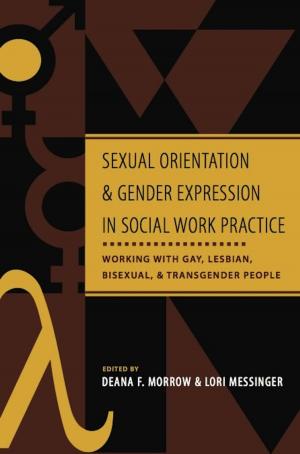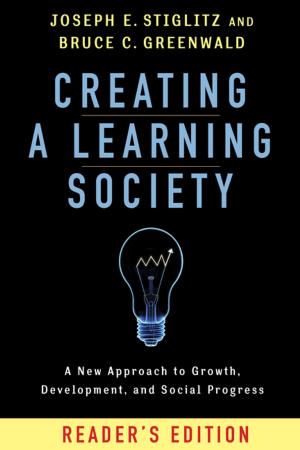What It Means to Be Daddy
Fatherhood for Black Men Living Away from Their Children
Nonfiction, Social & Cultural Studies, Social Science, Gender Studies, Men&, Cultural Studies, African-American Studies| Author: | Jennifer Hamer | ISBN: | 9780231505109 |
| Publisher: | Columbia University Press | Publication: | April 18, 2001 |
| Imprint: | Columbia University Press | Language: | English |
| Author: | Jennifer Hamer |
| ISBN: | 9780231505109 |
| Publisher: | Columbia University Press |
| Publication: | April 18, 2001 |
| Imprint: | Columbia University Press |
| Language: | English |
Absent fathers, the breakdown of the nuclear family, and single-mother households are often blamed for the poor quality of life experienced by many African American children. Jennifer F. Hamer challenges both the imposition of an inappropriate value system and the resulting ineffectual social policies. Most of what we know about fathers who do not live with their children is based on interviews with the mothers; this book is based on interviews with the fathers themselves. How do these fathers perceive their roles and responsibilities?
This myth-shattering book challenges stereotypes of negotiating parenthood within the context of poverty, live-away status, and black American manhood. Hamer has collected the voices of eighty-eight men who participated in this study by first examining the macro or cultural elements that encompass men's daily lives. As part 1 explores these larger forces that define the social world of fathers, part 2 looks at what significant others expect of men as fathers and how they behave under these circumstances. Part 3 analyzes the particular parenting roles and functions of fathers, using narratives of individual men to tell their own stories. In this book, contemporary black live-away fathers talk about their goals, walk us through their workplaces, allow us to meet their families and children, and enable us to view the world of parenthood through their eyes.
Absent fathers, the breakdown of the nuclear family, and single-mother households are often blamed for the poor quality of life experienced by many African American children. Jennifer F. Hamer challenges both the imposition of an inappropriate value system and the resulting ineffectual social policies. Most of what we know about fathers who do not live with their children is based on interviews with the mothers; this book is based on interviews with the fathers themselves. How do these fathers perceive their roles and responsibilities?
This myth-shattering book challenges stereotypes of negotiating parenthood within the context of poverty, live-away status, and black American manhood. Hamer has collected the voices of eighty-eight men who participated in this study by first examining the macro or cultural elements that encompass men's daily lives. As part 1 explores these larger forces that define the social world of fathers, part 2 looks at what significant others expect of men as fathers and how they behave under these circumstances. Part 3 analyzes the particular parenting roles and functions of fathers, using narratives of individual men to tell their own stories. In this book, contemporary black live-away fathers talk about their goals, walk us through their workplaces, allow us to meet their families and children, and enable us to view the world of parenthood through their eyes.















